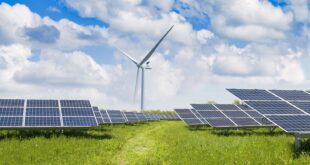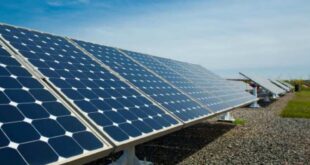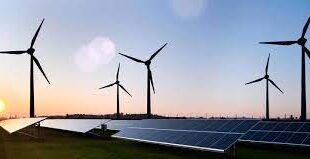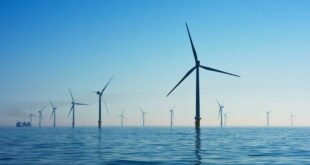European investors are urging EU decision-makers to back a long-term objective for the EU to be carbon neutral by 2050 as well as 2030 targets of at least 30% for energy efficiency and renewables – binding at EU level.
The investment case for low-carbon energy is strong: increased economic growth and jobs. reduced transition risks. and the most cost-effective pathway to realising the goals of the Paris Agreement. Why. then. are EU energy ministers so reluctant to provide the legislative framework required to shift the trillions?
A new year in Brussels. a new Council Presidency. taken up on 1 January by Bulgaria. The challenges of their mandate will be significant: migration. Brexit and the EU budget will dominate the political agenda. But the next six months will also see negotiations progress – and even conclude – on another issue of vital strategic importance to Sofia and many other EU governments: energy policy.
The low-carbon energy transition is a global challenge. but also a global opportunity. As the Institutional Investors Group on Climate Change (IIGCC). we represent European investors overseeing over €21 trillion in assets globally who recognise that clean technologies. energy efficiency and renewable energy present significant investment opportunities which can promote economic growth in Europe and boost job creation.
But to achieve this. clear. long-term legislative frameworks are critical in order for investors to assess and manage climate-related risks and to invest in opportunities that support a low-carbon. more energy efficient and climate-resilient world.
Exactly one month ago. national governments were fresh from the relative success of a low-key COP23 conference on climate change in Bonn and preparing to mark the second anniversary of the historic Paris Agreement on climate change (to much more fanfare) at the One Planet Summit. hosted in Paris by President Macron. Here. delegates heard from very senior representatives of governments. multi-lateral organisations. businesses and civil society about the continued political commitment to implementing the Paris Agreement. including new future actions and pledges to achieve its goals.
However. as President Macron himself noted. in the here and now “we are losing the battle“. Was it a surprise. then. just a few days following the Summit to see the Eu`s Energy Council scaling back climate ambition and extending subsidies to coal? Surprising – maybe not. based on their previous form. but certainly disappointing. The Energy Council once again missed a vital opportunity to provide investors with the clarity and the confidence they need from regulators to shift the trillions required to finance the low-carbon energy transition.
Thankfully. this is not the end of the road: the European Parliament is expected to finalise its position on these key energy files over the coming days before trilogue negotiations then begin later in the year. As decisions are made in the next stages of discussions. European investors will be urging EU decision-makers to recover a high-ambition approach and to develop final agreements on key files including energy efficiency. renewables and governance of the Energy Union that will put in place the most cost-effective pathway to achieve the EU’s 2030 climate and energy targets and to realise the goals of the Paris Agreement – supporting low-carbon investment today and for the future.
In concrete terms. this means a long-term decarbonisation objective for the EU to be carbon neutral by 2050. 2030 targets of at least 30% for energy efficiency and renewables. binding at EU level. and a strong framework to achieve these targets. in order to provide investor certainty and confidence. Any less will significantly hamper the substantial reallocation of capital needed in the long-term to finance a clean future for Europe’s energy sector. alongside all the economic. social and environmental benefits that it will bring.
Globally. over the coming months preparations will begin for the important task of scaling up ambition by countries in order to meet the goal of an at least 2°C limit on global temperature rises. In this context. it is vital for the EU and its member states to restore and step up its leadership on global climate action. For the incoming presidency. in Sofia as in Brussels it is vital that long-term. sustainable growth is put at the heart of decisions.
 Iran Energy News Oil, Gas, Petrochemical and Energy Field Specialized Channel
Iran Energy News Oil, Gas, Petrochemical and Energy Field Specialized Channel




